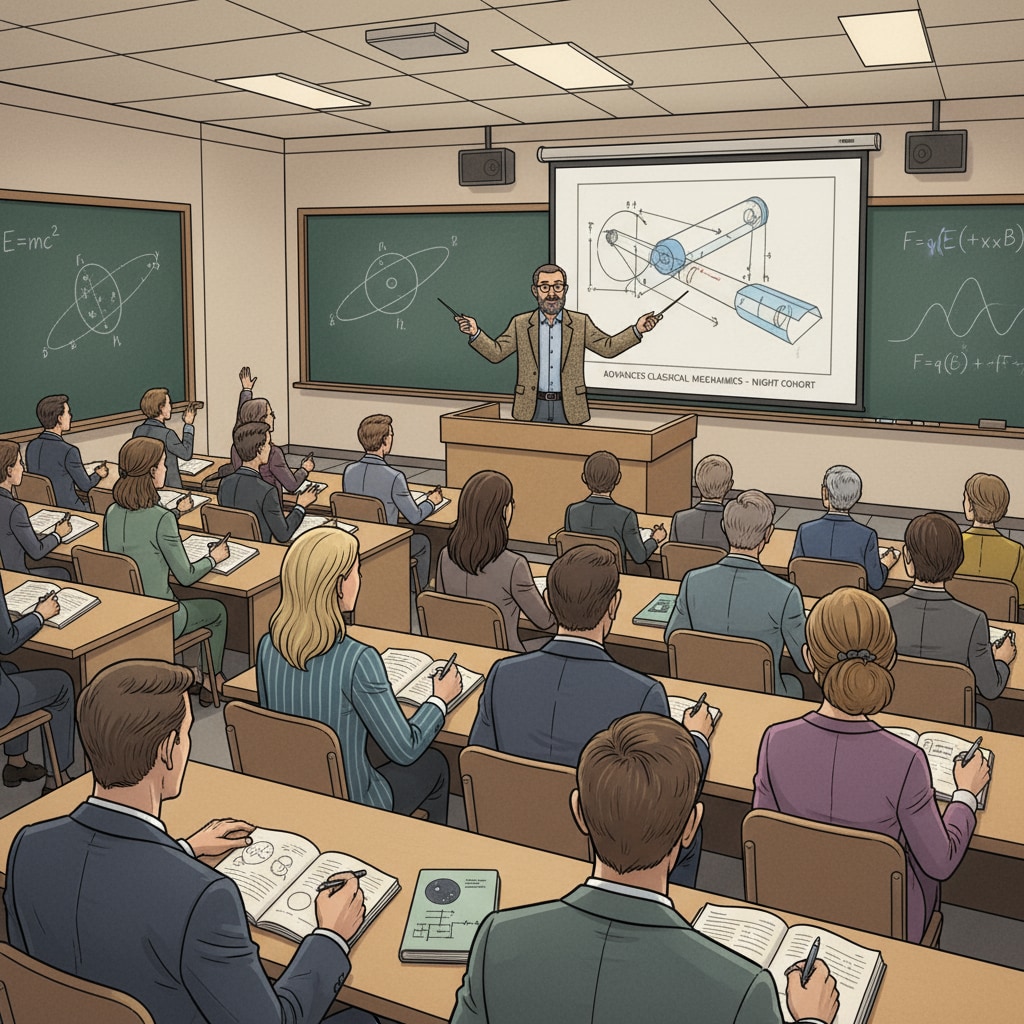In-service physics teachers often aspire to further their education through postgraduate degrees. The combination of night schools and online courses provides viable paths for them to achieve this goal. These options allow teachers to balance their teaching responsibilities while delving deeper into the fascinating world of physics and cosmology.

The Value of Postgraduate Education for Physics Teachers
For in-service physics teachers, pursuing a postgraduate degree offers numerous benefits. Firstly, it deepens their knowledge in the field. As physics is a constantly evolving discipline, postgraduate study equips teachers with the latest theories and research findings. This updated knowledge can then be seamlessly integrated into their teaching, making lessons more engaging and relevant. For example, understanding new advancements in quantum physics can enable teachers to introduce cutting-edge concepts to their students. Physics on Britannica
In addition, a postgraduate degree can enhance a teacher’s professional standing. It signals to employers and colleagues a commitment to continuous learning and improvement. This can lead to increased job opportunities, such as taking on leadership roles in curriculum development or research projects within the school.
Night School Options for In-service Physics Teachers
Night schools have long been a popular choice for working professionals. They offer a structured learning environment where in-service physics teachers can attend classes in the evenings. This allows them to continue their day-to-day teaching duties during regular working hours. Night school courses often cover a wide range of physics and cosmology topics, from advanced mechanics to astrophysics.

One advantage of night school is the face-to-face interaction with professors and fellow students. This interaction can facilitate in-depth discussions and a better understanding of complex concepts. Teachers can ask questions in real-time and engage in group activities that enhance their learning experience. However, night school also has its challenges. Commuting to and from the school in the evenings can be tiring, especially after a long day of teaching.
Online Courses: A Flexible Alternative
Online courses have revolutionized postgraduate education, offering unparalleled flexibility for in-service physics teachers. With online platforms, teachers can access course materials and lectures at any time and from anywhere. This means they can fit their studies around their teaching schedules, whether it’s during a break between classes or in the evenings at home. Online Learning on Wikipedia
Online courses also provide a wealth of resources, including video lectures, interactive simulations, and discussion forums. These resources can enhance the learning experience and make it more engaging. However, online learning requires a high level of self-discipline. Without the structure of a physical classroom, it can be easy for teachers to fall behind in their studies.
Readability guidance: The article uses short paragraphs to present key points clearly. Lists could be used further to summarize information. The proportion of passive voice and long sentences is controlled, and transition words are used throughout to enhance the flow of the text.


